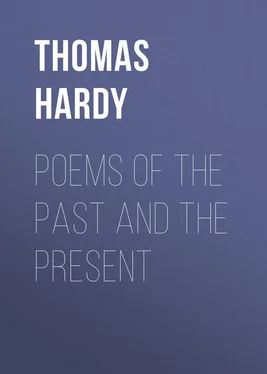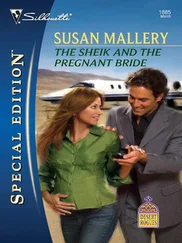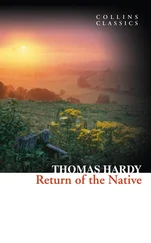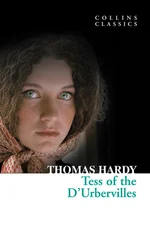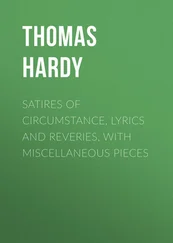Thomas Hardy - Poems of the Past and the Present
Здесь есть возможность читать онлайн «Thomas Hardy - Poems of the Past and the Present» — ознакомительный отрывок электронной книги совершенно бесплатно, а после прочтения отрывка купить полную версию. В некоторых случаях можно слушать аудио, скачать через торрент в формате fb2 и присутствует краткое содержание. Жанр: foreign_antique, foreign_prose, на английском языке. Описание произведения, (предисловие) а так же отзывы посетителей доступны на портале библиотеки ЛибКат.
- Название:Poems of the Past and the Present
- Автор:
- Жанр:
- Год:неизвестен
- ISBN:нет данных
- Рейтинг книги:4 / 5. Голосов: 1
-
Избранное:Добавить в избранное
- Отзывы:
-
Ваша оценка:
- 80
- 1
- 2
- 3
- 4
- 5
Poems of the Past and the Present: краткое содержание, описание и аннотация
Предлагаем к чтению аннотацию, описание, краткое содержание или предисловие (зависит от того, что написал сам автор книги «Poems of the Past and the Present»). Если вы не нашли необходимую информацию о книге — напишите в комментариях, мы постараемся отыскать её.
Poems of the Past and the Present — читать онлайн ознакомительный отрывок
Ниже представлен текст книги, разбитый по страницам. Система сохранения места последней прочитанной страницы, позволяет с удобством читать онлайн бесплатно книгу «Poems of the Past and the Present», без необходимости каждый раз заново искать на чём Вы остановились. Поставьте закладку, и сможете в любой момент перейти на страницу, на которой закончили чтение.
Интервал:
Закладка:
She was nor this nor that of those beings divine,
But each and the whole – an essence of all the Nine;
With tentative foot she neared to my halting-place,
A pensive smile on her sweet, small, marvellous face.
“Regarded so long, we render thee sad?” said she.
“Not you,” sighed I, “but my own inconstancy!
I worship each and each; in the morning one,
And then, alas! another at sink of sun.
“To-day my soul clasps Form; but where is my troth
Of yesternight with Tune: can one cleave to both?”
– “Be not perturbed,” said she. “Though apart in fame,
As I and my sisters are one, those, too, are the same.
– “But my loves go further – to Story, and Dance, and Hymn,
The lover of all in a sun-sweep is fool to whim —
Is swayed like a river-weed as the ripples run!”
– “Nay, wight, thou sway’st not. These are but phases of one;
“And that one is I; and I am projected from thee,
One that out of thy brain and heart thou causest to be —
Extern to thee nothing. Grieve not, nor thyself becall,
Woo where thou wilt; and rejoice thou canst love at all!”
ROME
AT THE PYRAMID OF CESTIUS
NEAR THE GRAVES OF SHELLEY AND KEATS
(1887)
Who, then, was Cestius,
And what is he to me? —
Amid thick thoughts and memories multitudinous
One thought alone brings he.
I can recall no word
Of anything he did;
For me he is a man who died and was interred
To leave a pyramid
Whose purpose was exprest
Not with its first design,
Nor till, far down in Time, beside it found their rest
Two countrymen of mine.
Cestius in life, maybe,
Slew, breathed out threatening;
I know not. This I know: in death all silently
He does a kindlier thing,
In beckoning pilgrim feet
With marble finger high
To where, by shadowy wall and history-haunted street,
Those matchless singers lie.
– Say, then, he lived and died
That stones which bear his name
Should mark, through Time, where two immortal Shades abide;
It is an ample fame.
LAUSANNE
IN GIBBON’S OLD GARDEN: 11–12 P.M
( The 110 th anniversary of the completion of the “ Decline and Fall ” at the same hour and place )
A spirit seems to pass,
Formal in pose, but grave and grand withal:
He contemplates a volume stout and tall,
And far lamps fleck him through the thin acacias.
Anon the book is closed,
With “It is finished!” And at the alley’s end
He turns, and soon on me his glances bend;
And, as from earth, comes speech – small, muted, yet composed.
“How fares the Truth now? – Ill?
– Do pens but slily further her advance?
May one not speed her but in phrase askance?
Do scribes aver the Comic to be Reverend still?
“Still rule those minds on earth
At whom sage Milton’s wormwood words were hurled:
‘ Truth like a bastard comes into the world
Never without ill-fame to him who gives her birth ’?”
ZERMATT
TO THE MATTERHORN
Thirty-two years since, up against the sun,
Seven shapes, thin atomies to lower sight,
Labouringly leapt and gained thy gabled height,
And four lives paid for what the seven had won.
They were the first by whom the deed was done,
And when I look at thee, my mind takes flight
To that day’s tragic feat of manly might,
As though, till then, of history thou hadst none.
Yet ages ere men topped thee, late and soon
Thou watch’dst each night the planets lift and lower;
Thou gleam’dst to Joshua’s pausing sun and moon,
And brav’dst the tokening sky when Cæsar’s power
Approached its bloody end: yea, saw’st that Noon
When darkness filled the earth till the ninth hour.
THE BRIDGE OF LODI 2 2 Pronounce “Loddy.”
( Spring , 1887)
When of tender mind and body
I was moved by minstrelsy,
And that strain “The Bridge of Lodi”
Brought a strange delight to me.
In the battle-breathing jingle
Of its forward-footing tune
I could see the armies mingle,
And the columns cleft and hewn
On that far-famed spot by Lodi
Where Napoleon clove his way
To his fame, when like a god he
Bent the nations to his sway.
Hence the tune came capering to me
While I traced the Rhone and Po;
Nor could Milan’s Marvel woo me
From the spot englamoured so.
And to-day, sunlit and smiling,
Here I stand upon the scene,
With its saffron walls, dun tiling,
And its meads of maiden green,
Even as when the trackway thundered
With the charge of grenadiers,
And the blood of forty hundred
Splashed its parapets and piers.
Any ancient crone I’d toady
Like a lass in young-eyed prime,
Could she tell some tale of Lodi
At that moving mighty time.
So, I ask the wives of Lodi
For traditions of that day;
But alas! not anybody
Seems to know of such a fray.
And they heed but transitory
Marketings in cheese and meat,
Till I judge that Lodi’s story
Is extinct in Lodi’s street.
Yet while here and there they thrid them
In their zest to sell and buy,
Let me sit me down amid them
And behold those thousands die.
– Not a creature cares in Lodi
How Napoleon swept each arch,
Or where up and downward trod he,
Or for his memorial March!
So that wherefore should I be here,
Watching Adda lip the lea,
When the whole romance to see here
Is the dream I bring with me?
And why sing “The Bridge of Lodi”
As I sit thereon and swing,
When none shows by smile or nod he
Guesses why or what I sing?.
Since all Lodi, low and head ones,
Seem to pass that story by,
It may be the Lodi-bred ones
Rate it truly, and not I.
Once engrossing Bridge of Lodi,
Is thy claim to glory gone?
Must I pipe a palinody,
Or be silent thereupon?
And if here, from strand to steeple,
Be no stone to fame the fight,
Must I say the Lodi people
Are but viewing crime aright?
Nay; I’ll sing “The Bridge of Lodi” —
That long-loved, romantic thing,
Though none show by smile or nod he
Guesses why and what I sing!
Интервал:
Закладка:
Похожие книги на «Poems of the Past and the Present»
Представляем Вашему вниманию похожие книги на «Poems of the Past and the Present» списком для выбора. Мы отобрали схожую по названию и смыслу литературу в надежде предоставить читателям больше вариантов отыскать новые, интересные, ещё непрочитанные произведения.
Обсуждение, отзывы о книге «Poems of the Past and the Present» и просто собственные мнения читателей. Оставьте ваши комментарии, напишите, что Вы думаете о произведении, его смысле или главных героях. Укажите что конкретно понравилось, а что нет, и почему Вы так считаете.
